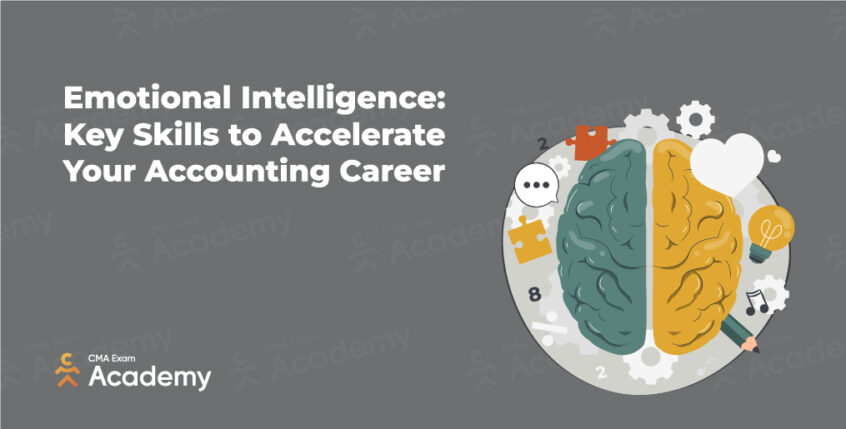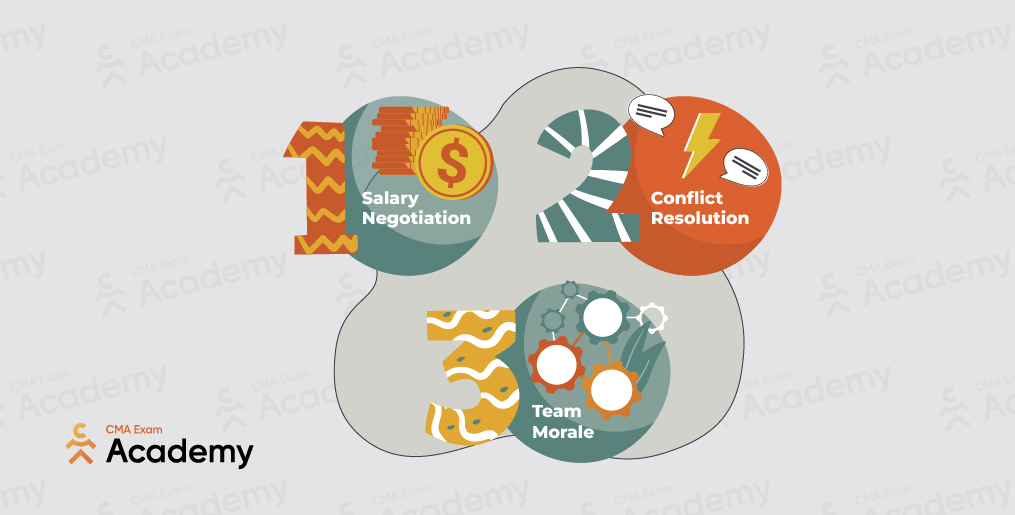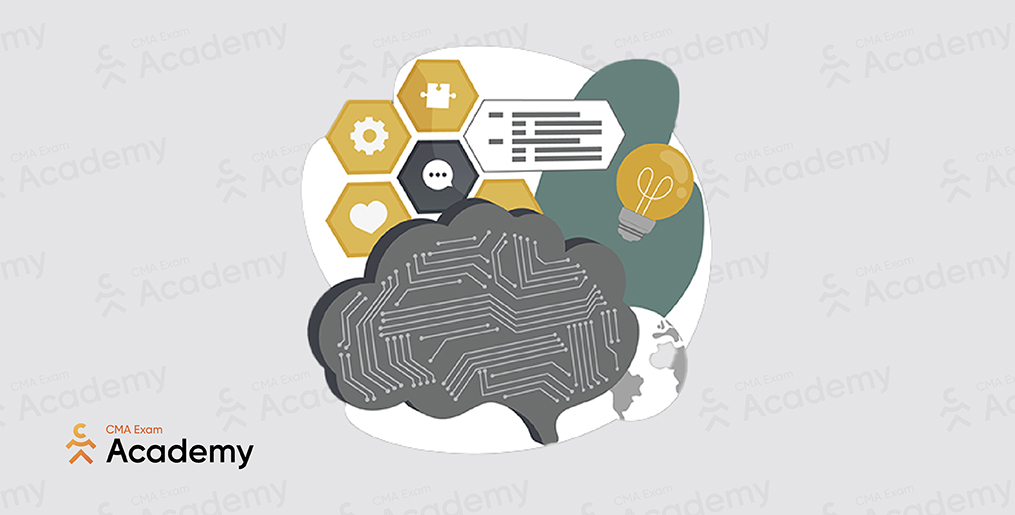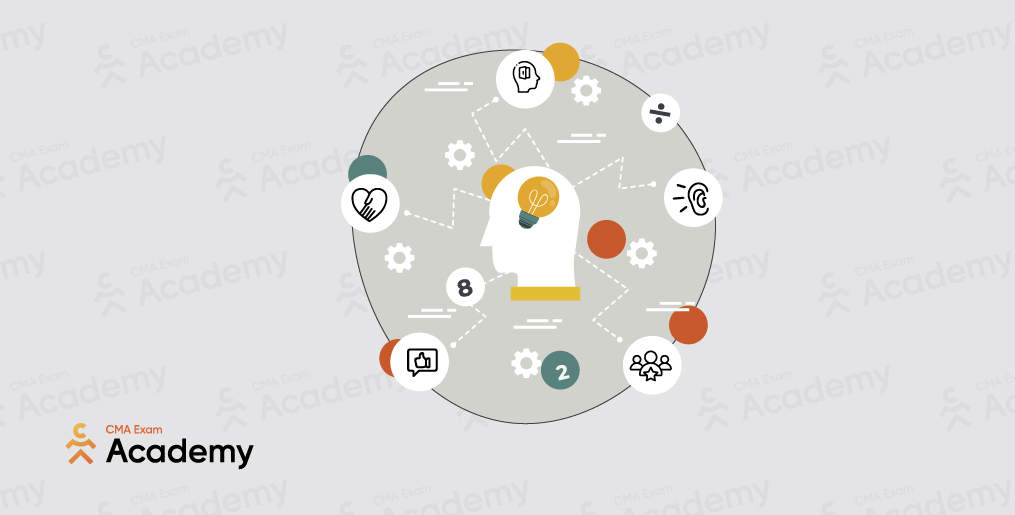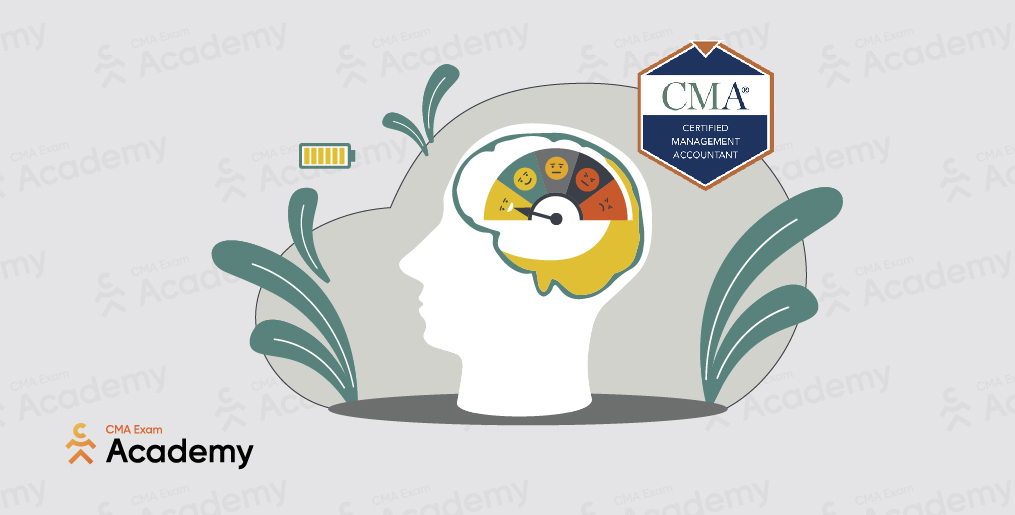What is the difference between a good CMA and a great one? The answer depends on who you ask, but chances are, all answers will relate to emotional intelligence.
Leadership, communication, resilience, and teamwork skills all begin with a solid foundation of emotional intelligence. These skills are especially necessary for accounting leaders like CFOs or corporate controllers.
Studies have found that professionals who develop their emotional intelligence report higher rates of job satisfaction than those who don’t. So it’s safe to say it’s an important skill to master.
In my experience working with thousands of accounting professionals, I’ve noticed a strong correlation between those who prioritize interpersonal skills and those who land high-paying, exciting positions.
In this article, I’ll break down everything I know about emotional intelligence for accountants and CMAs. If you’re interested in diversifying your skillset, becoming a competitive applicant, and improving your chances of landing your dream management accounting job, then you’re in the right place.
Keep reading to learn more about:
- What Is Emotional Intelligence?
- The Importance of Emotional Intelligence in Accounting
- Why Emotional Intelligence Is Important in a World Driven by AI
- Emotional Intelligence Skills for Accounting
- Improve Your Emotional Intelligence to Become a CMA
What Is Emotional Intelligence?
Emotional intelligence (EI) is one’s ability to recognize, analyze, understand, navigate, and manage emotions. This includes your own emotions as well as the emotions of others.
There are many interpersonal and intrapersonal skills and abilities that fall under the umbrella of emotional intelligence, and most professionals practice these skills on a daily basis at work and in their personal lives.
Skills like communication, active listening, and adaptability are all related directly to emotional intelligence, as is one’s ability to give and receive feedback or lead others.
The Importance of Emotional Intelligence in Accounting
Possessing an awareness of emotions makes it possible to grow and learn in a workplace environment. It bolsters our ability to collaborate with others, manage feedback, allocate resources and responsibilities, and manage obstacles.
People who possess fewer skills in emotional intelligence tend to struggle when it comes to leadership positions since leadership requires plenty of soft skills.
Some of the key ways emotional intelligence can benefit management accounting professionals are highlighted below:
- Salary negotiation: accountants who are adept at emotional intelligence have better communication skills, which helps them negotiate better salaries.
- Conflict resolution: navigating conflict is a natural part of most jobs, including accounting. Doing so effectively requires a good understanding of emotions.
- Team morale: people who have a lot of emotional intelligence are typically well-regarded by their peers. They are seen as community leaders whom others can trust.
Why Emotional Intelligence Is Important in a World Driven by AI
As AI continues to become increasingly prevalent in the professional world, so does the importance of human-specific skills and abilities.
Regardless of how human-like AI can become, it will never be human. So developing human-specific skills that allow you to form strong connections with others is more critical than ever.
Let me give you an example.
Your company might be able to program an AI to send cards to your clients and team members on their birthdays. But knowing that those regards came from an AI completely strips them of their meaning.
What makes those cards special? The card themselves or the human effort behind them?
AI might be able to complete many of your job tasks with more efficiency, but it will never replace what makes you human.
What makes you human, you ask? Your ability to read a client’s body language to ask them if they’re stressed or offer them congratulations when you remember their daughter’s recent college graduation.
That takes emotional intelligence. And it’s what makes these skills so important in our increasingly artificial world.
Emotional Intelligence Skills for Accounting
Now that we’ve established the importance of emotional intelligence for management accountants, let’s go over some core competencies you can hone to develop your EI.
1. Empathy and Sympathy
Your ability to relate to others, either through empathy or sympathy, directly relates to your ability to connect to them on a human level.
Compassion is widely recognized as a highly valued skill in many workplaces. Becoming more empathetic can help you operate your business from a place of compassion.
Here are a few ways you can develop your capacity for empathy and sympathy:
- Talk to strangers. Learning about other people can help you cultivate an understanding of and appreciation for our differences. Everyone has a story. Learning about people helps you make sense of their behavior in a way that allows you to view the world from their perspective.
- Give back. Charity work, community service, or participation in an unpaid activity of any sort can help you hone your appreciation for helping others. This is also a great place to strike up a conversation with strangers.
- Exercise critical thinking. Being critical of your biases and privileges can help you understand where your blind spots might prevent you from connecting to others. Sometimes, we just don’t understand something, but that’s where this next skill comes in…
2. Active Listening
Active listening is key to emotional intelligence. It can help us pick up on nonverbal cues like tone and inflection. It can also help us read between the lines of what someone is saying to anticipate their needs more accurately.
By practicing active listening, you’ll also enhance your ability to:
- Connect with clients, customers, bosses, and coworkers
- Solve problems efficiently
- Learn new skills
All of these are important for accountants, and prioritizing them can help you advance in your career.
To become better at active listening, try practicing the following:
- Pay attention to body language. Both your own body language as well as the body language of others is a massively important component of communication. Be sure to maintain eye contact when you’re listening to someone else. And pay attention to the cues the speaker is giving with their body language as well. This will help you recognize unspoken emotions and account for them in your response.
- Be open. Accept that every person in this world has something to teach you. Staying open means reserving your judgments and assumptions. Never interrupt someone’s thoughts and feel free to ask questions that will help you understand what they’re saying.
- Clarify. Questions and confirmation are both major parts of active listening. Repeating what the speaker has said in your own words works to improve communication in two ways. First, it shows the speaker that you were paying attention. Second, it limits any potential for miscommunication.
Active listening is an important skill for accounting professionals, especially those who want to become leaders. It is a key communication competency that will help you navigate conflict and advocate for your team.
3. Compassionate Leadership
There has been a lot of talk in the business world about compassionate leadership. And it makes sense — Gen Z and Millennial workers place a higher value on community, purpose, and compassion at work.
Great leaders are adaptable. They are able to adjust strategies and situations to support the needs of their team members. But you can’t do this if you can’t recognize the emotional needs of others.
If you want to take on a leadership role at your workplace, or if you want to become a better leader to your existing team, here are some important leadership skills to focus on:
- Communication. Are you noticing a theme here? A lot of emotional intelligence development starts and ends with human connection and interaction. Communication is critical for leaders, and it involves a good degree of emotional intelligence to do well.
- Giving and receiving feedback. Giving feedback is an important part of a leader’s job. It’s a tremendous opportunity to improve emotional intelligence and critical thinking skills. This is because giving feedback requires the critiquer to possess a solid understanding of both the task being critiqued and the communication skills to give feedback effectively. Plus, it improves your ability to receive and implement feedback, which is vital for personal and professional development. I like to give feedback using the sandwich method: provide constructive criticism between two compliments.
Improve Your Emotional Intelligence to Become a CMA
Improving your skills and taking the next step in your career can be overwhelming. It’s difficult to know where to start. I recommend my students focus on a balance between technical and soft skills. So while you’re studying for the CMA exam, also think about how you can improve your emotional intelligence at work.
That might seem like a lot, considering the fact that the process of becoming a CMA is such a challenge. But it’s worth it. Trust me – on average, CMAs outearn their noncertified peers by approximately 58%.
If you’re ready to start studying for the exam, check out my CMA 16-Week Accelerator program. It’s designed to save you hours of study time. It’s even guaranteed to help you pass the exam.
But don’t just take my word for it. The results speak volumes – my students’ pass rate is nearly double that of the global average.
So take a look! It’ll save you a ton of time and money in the long run. And as always, feel free to leave your questions in the comments.

Hi, I’m Nathan Liao (aka the CMA Coach)! For the last 10 years, over 82,000 accounting and finance pros came knocking at my door seeking guidance and help. If you’re also aiming to conquer the CMA exam on your very first try—without wasting away time or money—you’ve found your ultimate guide. Dive in deeper to discover more about me and the dedicated team that powers CMA Exam Academy. Click here and let’s embark on this journey together!

